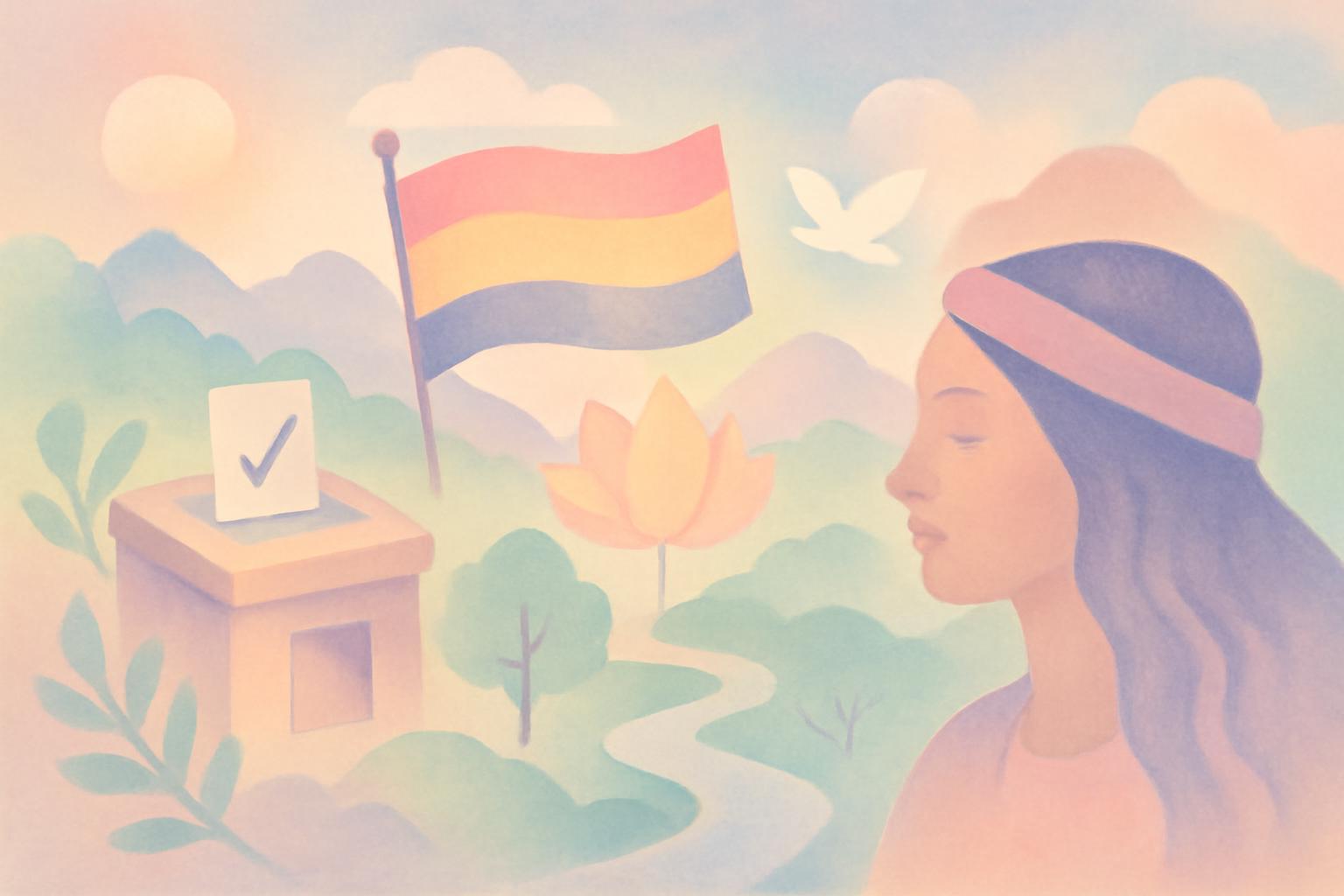The air is thick with turning tides. In Bolivia, the political stage tilts toward a runoff as two center- and right-leaning horizons gather momentum, while the MAS current falters and the old promises feel weathered. The economy groans—fuel shortages, a depleted treasury, prices climbing like dry grasses in late summer—and the people watch, aching for steadiness as the clock ticks toward October. Voices tumble between unity and protest, between caution and daring, as Morales’ warning flares and the left grapples with its own fractures. In this moment, the ballot box is not merely a tool of governance but a prayer of care or neglect cast into the wind.
Let us then tilt our hearts toward the truth Mother Earth holds under every road and roof. The wounds of this moment run deeper than political misalignment; they trace the old, winding scars of colonialism and the unending fever of a global marketplace that values profit over life. When two right-leaning paths rise, promising stability with a velvet glove—but built on the bones of communities, on the extraction of rivers, on the privatization of air—Earth becomes a mere resource to be priced, policed, and plundered. The land remembers. Pachamama remembers. And so do the people.
The deeper harm is not only political but planetary. The soil is taxed by extractive appetites, forests wept for their lungs, and waters are measured in rents rather than rights. The colonial gaze—tame, civilizing, profit-bound—still walks beside us, rewriting indigenous sovereignty as a mere obstacle to “development.” In Bolivia’s story, as in many others, the dispossession of ancestral lands, the suppression of languages and cosmologies, and the seizure of communal wealth have left a debt that cannot be repaid with a tax cut or a faster highway. The left’s fracture is not merely a political misstep; it is a symptom of a system that asks communities to endure sacrifice while the balance sheet shines. The call for “unity” can become a weapon, a reminder that those most marginalized are the first to bear the cost of political compromise.
Meanwhile, the toxic kapitalist engine—accelerating growth, disciplined by austerity, feeding inequality—keeps turning. Growth for a few, price hikes for many; the currency of life—water, land, air—recast as collateral for loans and budgets. When fuel becomes a scarcity, it is not just an inconvenience; it is a daily sermon about who is valued and who is left to ration their breath. The politics of compromise must never be a license to hollow out communities, to hollow out forests, or to hollow out the future. We need a economy that does not merely cushion the fall of the poorest but lifts every living being toward health and dignity.
In this crucible, healing begins with a radical reimagining of power. It demands that democracy be felt in soil and seed, not only in polls and parties. It asks us to honor the sovereignty of Indigenous nations and to recognize the rights of nature as a legal and moral reality. It requires a move away from extractive pathways toward regenerative ones: agroecology rooted in community knowledge; energy systems owned by the people—cooperatives that put people and rivers above profits; food sovereignty that nourishes families rather than markets; and transparent, anti-corrupt governance that treats public wealth as a common inheritance rather than a private purse.
Here are seeds we can plant in our prayers and policies: - Center indigenous sovereignty and protect natural commons: water as a living right, land as a collective trust, forests as lungs for all beings. - Build an economy of care and resilience: cooperatives, community-owned energy, regenerative agriculture, fair trade, and debt relief that frees people to invest in sustainable futures rather than survival. - End predatory austerity: prioritize human dignity, universal social protections, and investments in public services that heal communities and ecosystems. - Embrace the rights of nature and climate justice as core governance: pipelines and mines must pass rigorous tests of environmental and cultural impact, with consent from affected communities. - Transform education and media into vessels of healing, truth-telling, and- intergenerational wisdom-sharing, honoring both scientific insight and Indigenous epistemologies. - Foster regional solidarity that resists coercive neocolonial models and supports ecosystems of cooperation across borders.
To the people of Bolivia—and to all who reads these signs—let us tend the orbit of our shared home. Let the December winds be a reminder that the health of Pachamama is inseparable from the health of our democracies. Let us choose leadership that does not merely manage crises but mends wounds: leadership that sees hunger as a brake on human dignity and sees the soil as a blessing to be safeguarded. Let us vote not out of fear but out of devotion to the common good; let us mobilize not to conquer one another but to protect the living tapestry of land, water, and community.
We stand at a threshold where political fate and ecological fate entwine. If we cultivate a future where power serves life—where the land, the rivers, and the people are cherished as sacred kin—then even a difficult transition can be a rite of renewal. May the choices we make be guided by a quiet courage: to heal, to resist exploitation, to honor the ancestors, and to give our descendants a world that breathes with possibility rather than a ledger’s cold arithmetic. In this moment, let us plant hope in the soil of justice, tend it with care, and harvest a future worthy of all beings who share this blue-green home.
